Tour of Phnom Penh – Royal Palace complex
The next day our tour in Phnom Penh began and proved a busy one, commencing with a tour of the city and the Royal Palace. The Riverfront Park opposite the Royal Palace is a very attractive park, well used by the locals and tourists alike. The Tonle Sap river provides an attractive waterfront area, quite picturesque, with graceful palms lining the boulevard at Sisowath Quay.
We disembark near the Royal Palace complex and enter through the access gate. The palace grounds are beautifully designed and maintained, with lush green lawns and shrubbery. The Palace is built in traditional Khmer style with gilded, pitched roofs. The Royal Palace is the official residence of King Sihamoni, the reigning monarch of Cambodia. It is a private walled area within the complex and is closed to the public.
The Throne Hall – Royal Palace complex
First we visit the Throne Hall, a striking building in Bayon architectural style with a cruciform shape and triple spires. The central spire is crowned by a 59m high tower with the four smiling faces of Brahma. The four smiling faces represent the four virtues of parents towards their children, these being mercy, compassion, sympathy and neutrality.
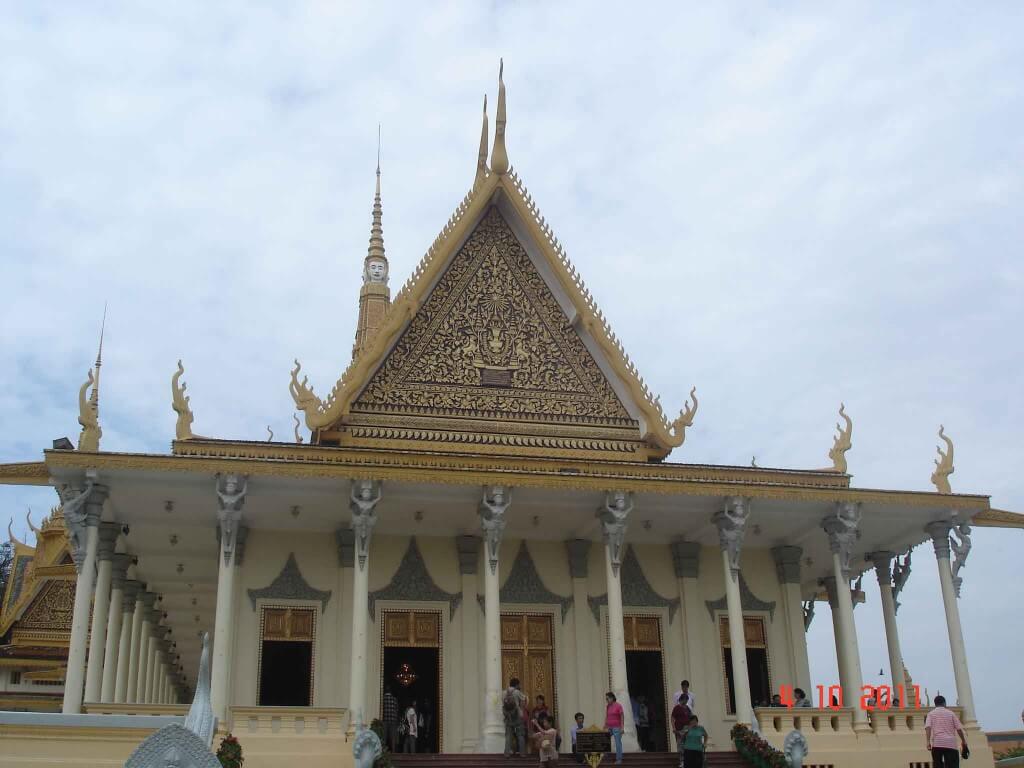
Throne Hall-Entrance has five-doors-the center door is for the exclusive use of the king and Queen. Royal Palace, Phnom Penh, Cambodia
There are five doors leading into the Throne Hall, the central doorway is for the exclusive use of the king and queen. Step inside to a beautifully tiled floor with a lotus bud design; the center of the room is richly carpeted with a lotus pattern complimenting the tiled pattern on the floor.
The ceiling in the Throne Hall is beautifully decorated with a French influence, including chandeliers, and magnificent gilt framed ceiling murals depicting the Reamker. The Reamker is the Khmer translation of the Hindu epic Ramayana.
At the rear of the Throne Hall are the royal thrones of the king and queen of Cambodia. The king’s throne is a small golden throne and sits at the front, whilst the queen’s throne is taller and built on a golden stage decorated with Nagas. It is placed behind the kings throne. Nearby sit a row of gilded busts of previous kings of Cambodia. All very royal and impressive. No photos allowed.
When leaving the complex look for a small souvenir stall near the Buddha tree which has an excellent book ($12) with photographs of the interior of the Throne Hall and Silver Pagoda, as well as sets of postcards ($3 per set).
Seven Headed Nagas (Serpents)
The entrance stairway to the Throne Hall in the Royal Palace comples, has a balustrade depicting the seven headed Nagas (serpents). On either side of the stairway stands a lion guardian. These are architectural symbols of ancient Khmer temples. The Naga balustrade represents the staircase leading people to heaven. The Lion Guardian is to prevent unwanted evil from entering the Throne Hall.
The Throne Hall was built in 1917 and inaugurated by King Sisowath in 1919. Built on the western bank of the Tonle Sap River it is designed to face the rising sun. It is now used mainly for formal occasions such the coronations, and for welcoming visiting dignitaries from foreign countries. The Throne Hall is also known as the Sacred Seat of Judgement.
The Phochani Pavilion – Royal Palace
The Phochani-Pavilion within the Royal Palace complex, also features the Naga balustrade. The Naga railing and seven headed Nagas were to become a familiar sight during our tour of Cambodia. A handsome pavilion, the Phochani was originally constructed in 1912 as a classical dance theater, is now used for Royal receptions and meetings.
Hor Samran Phirun or Royal Rest House
Hor Samran Phirun or Royal Rest House is to the right of the Throne Hall in the Royal Palace complex. It is used by the king and queen while they wait for their ceremonial elephants on coronation day.
The Royal Treasury – Royal Palace complex Phnom Penh
We visited the Royal Treasury or Bronze Pavilion, which has a most interesting display of the royal regalia used for the coronation ceremonies. This includes the Great Crown of Victory, the Victory Spear, and Scared Sword which are very impressive pieces. There are many other beautiful pieces such as the royal gold kettle, a gold embossed pedestal tray and vases.
Chan Chaya Pavilion – Royal Palace
The Chan Chaya Pavilion or Dancing Pavilion was traditionally used by the royal family to view parades and performances of classical Khmer dances. Nowadays it is used for royal celebrations. The Royal family, will view firework displays held on the riverbank for the King’s birthday, and other special occasions from this pavilion. It is also used for royal and state banquets.
Next: The Silver Pavilion…….
Books for reading before you go.
Cambodia Laos Eyewitness Travel Guide
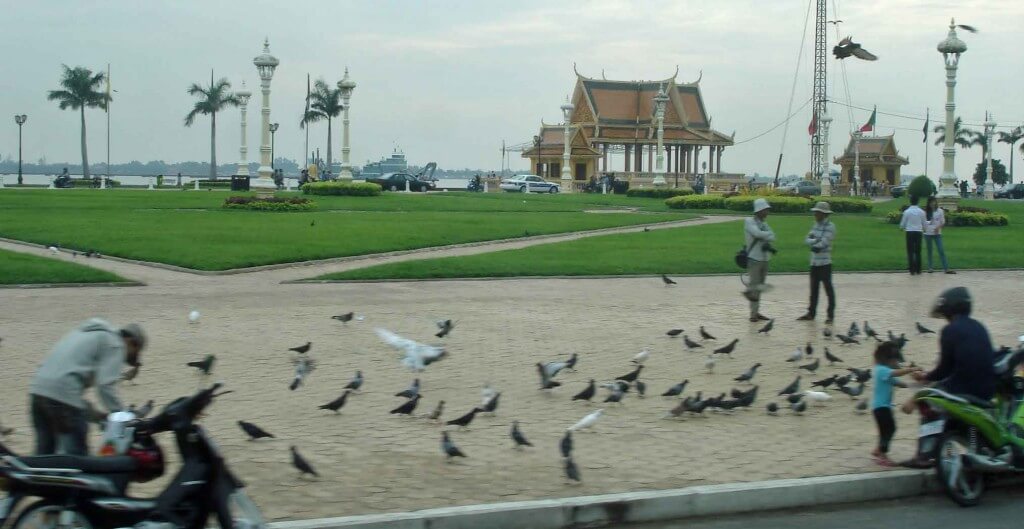
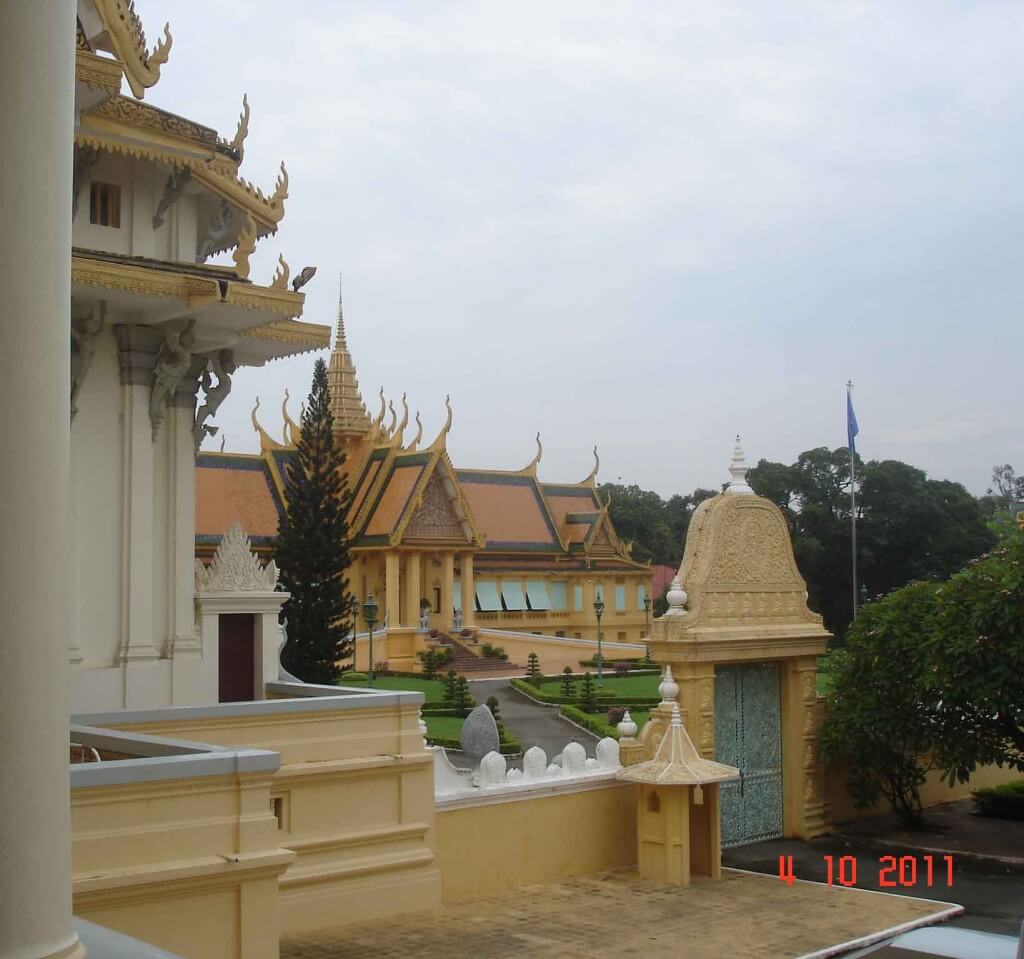
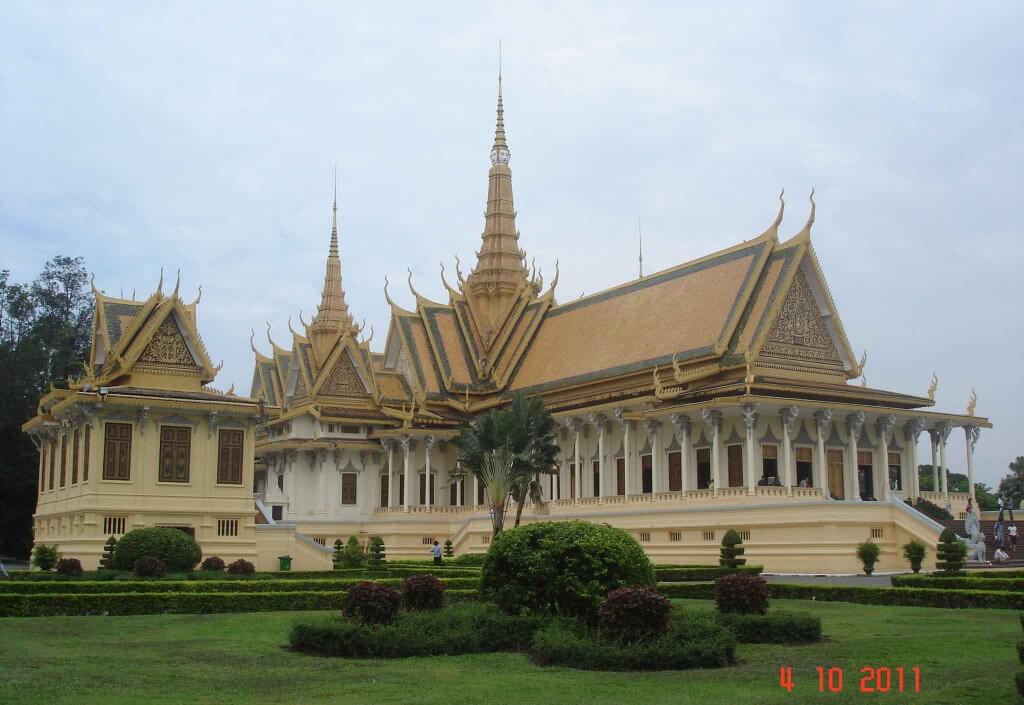
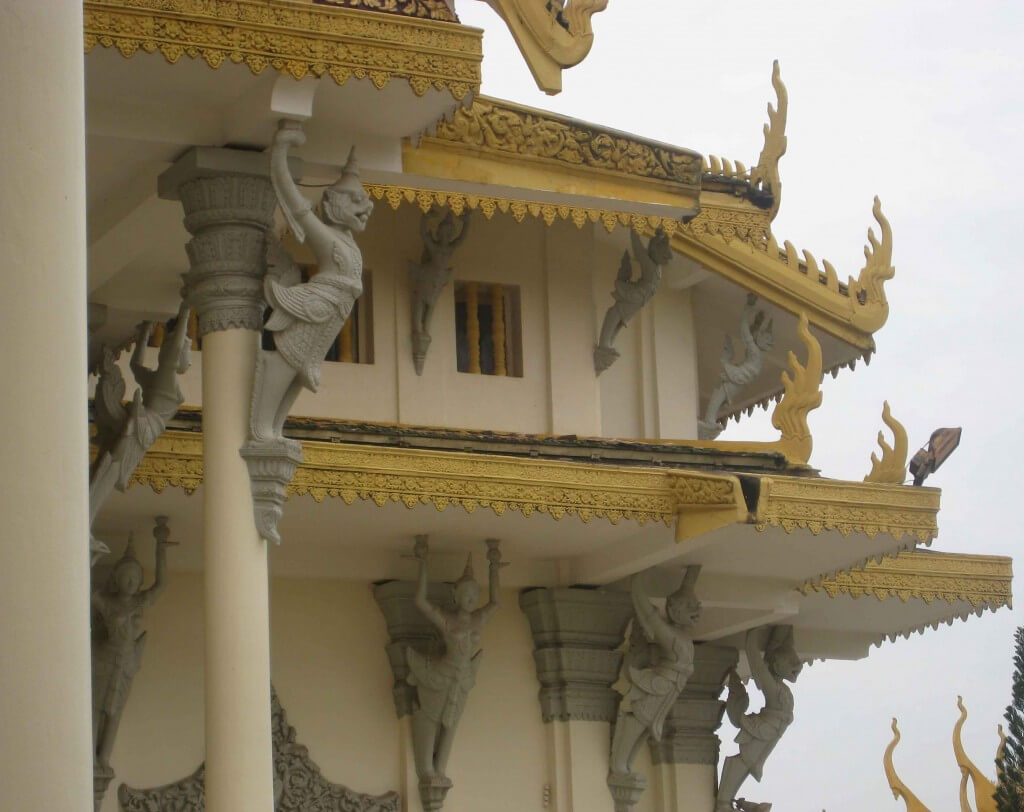
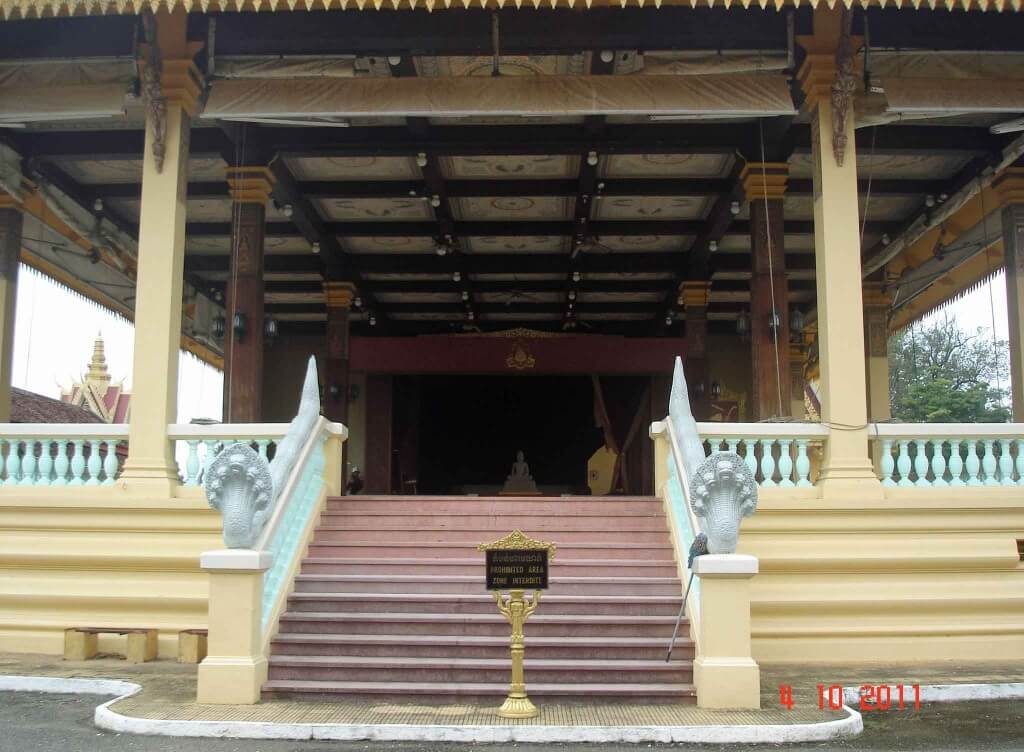
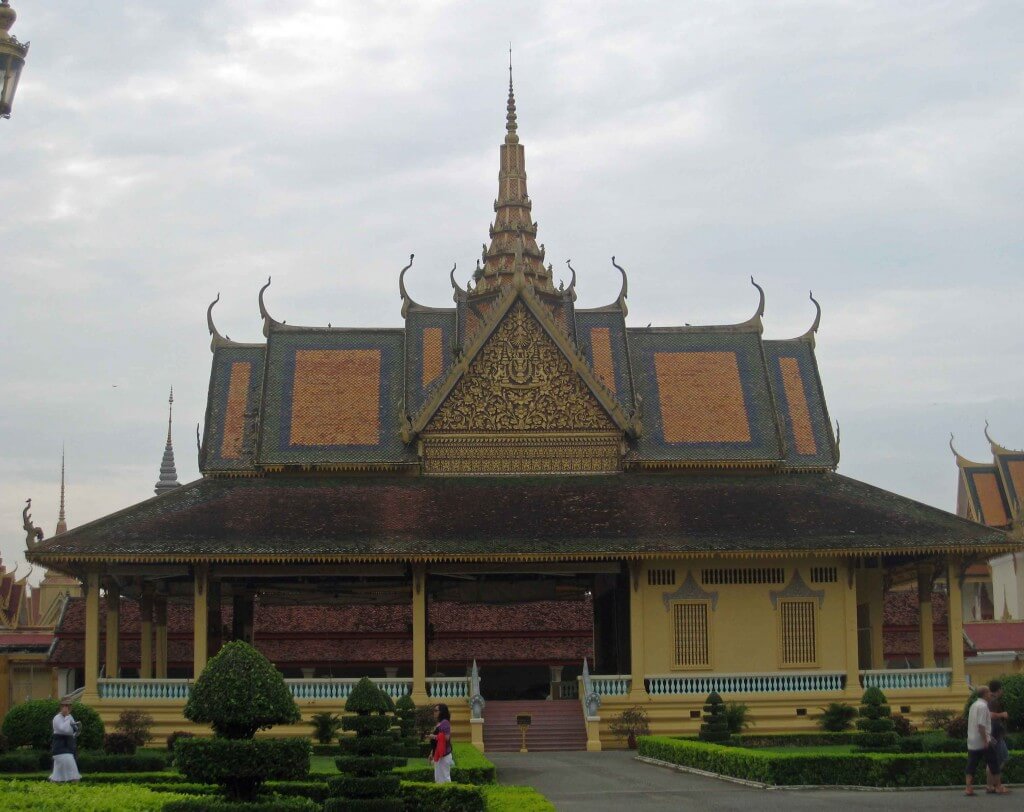
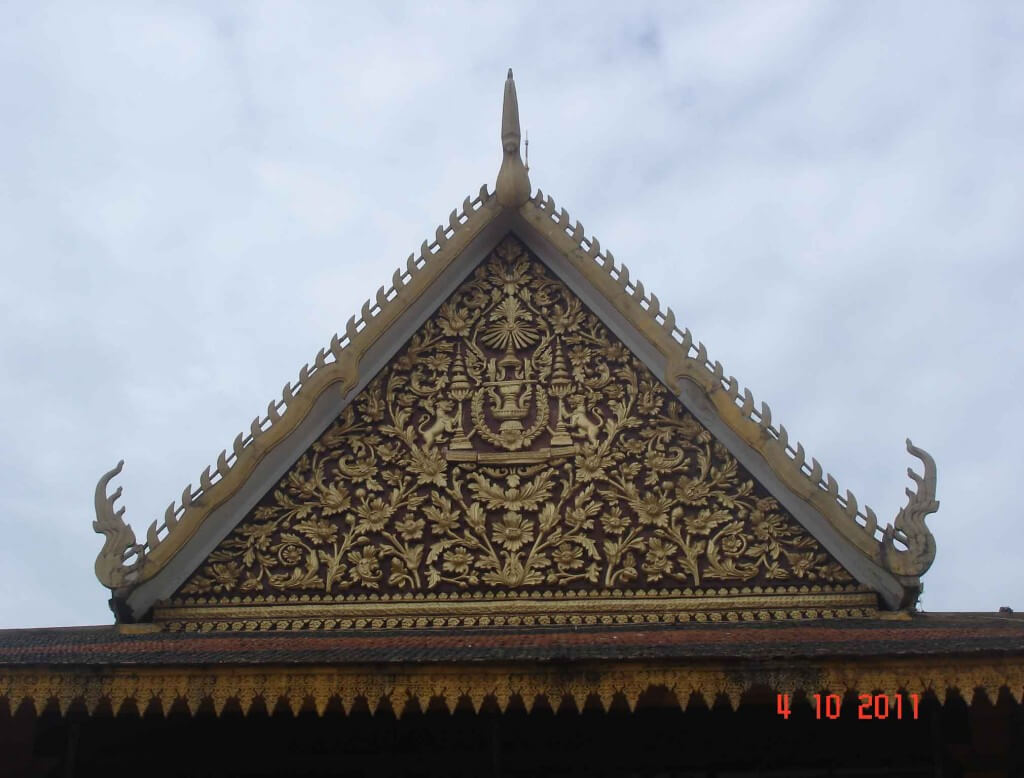
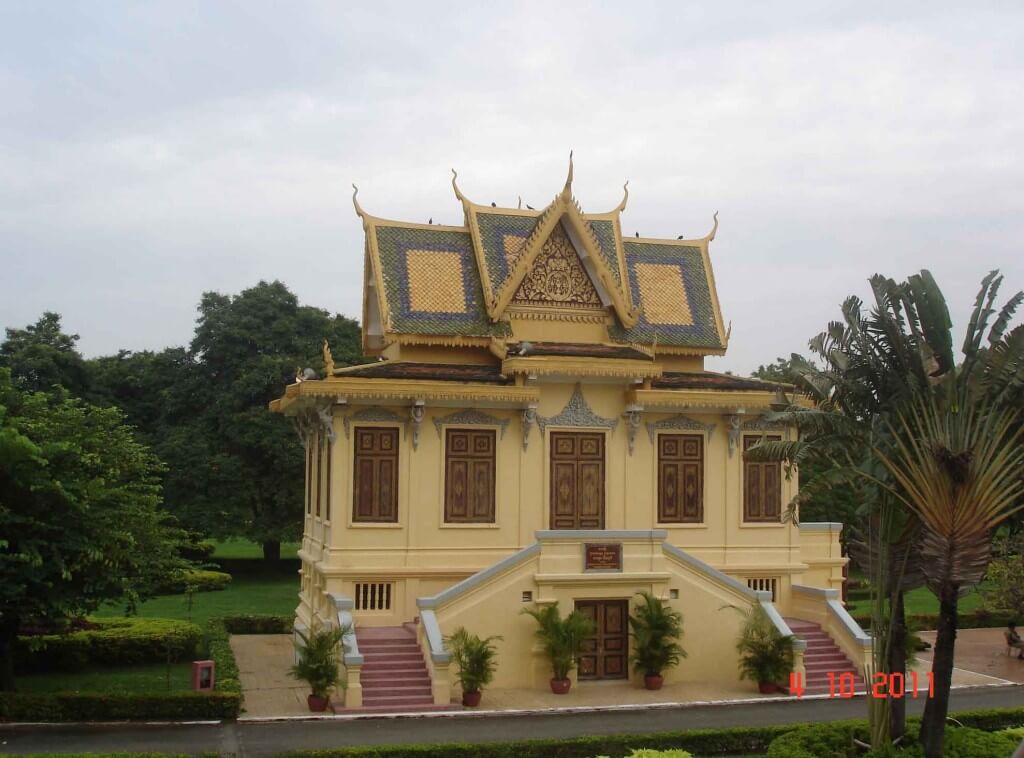
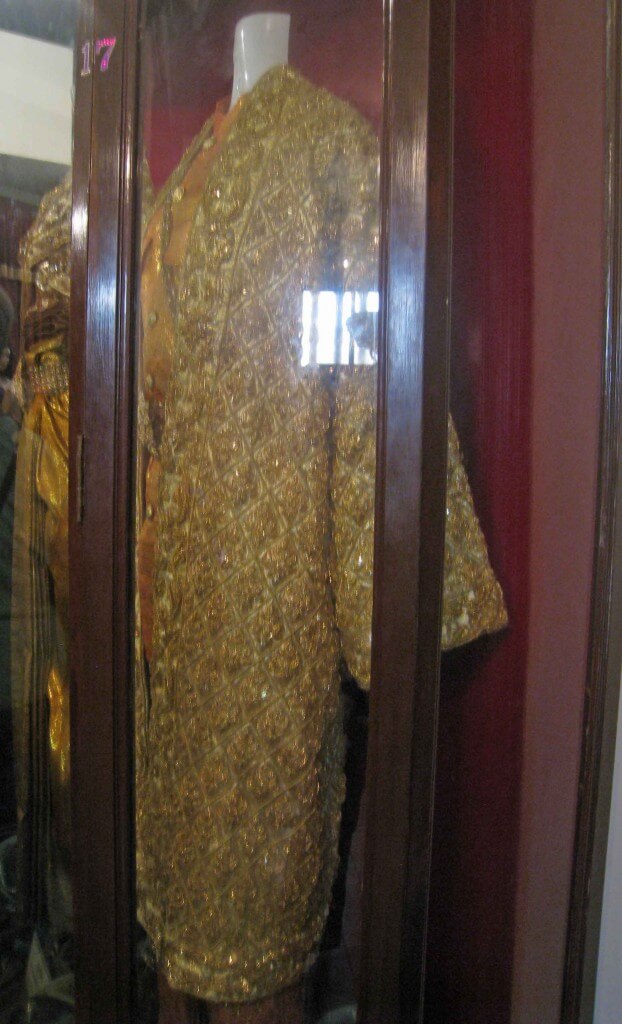
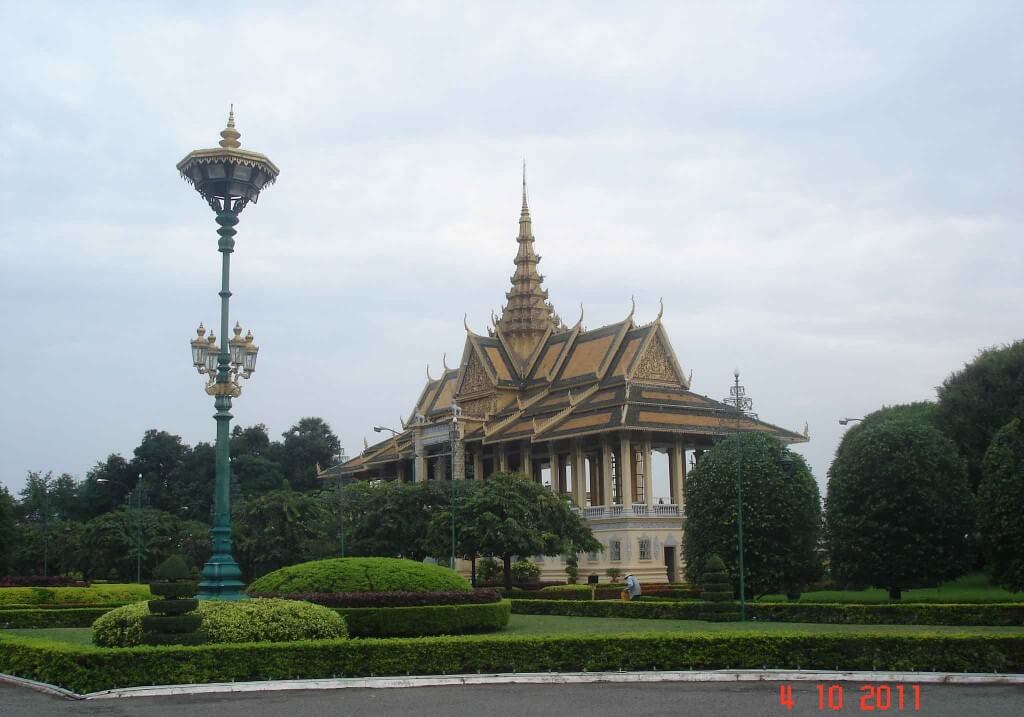
Speak Your Mind